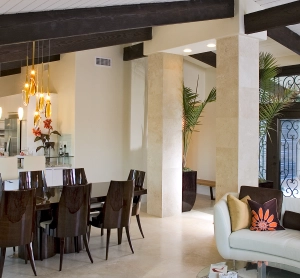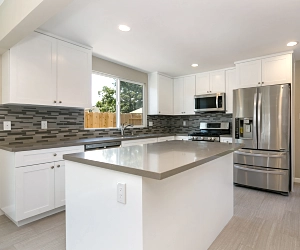
As a landlord, you’re likely to face requests for renovations from tenants at some point. It can be difficult to know how to react when this happens – after all, you don’t want to upset your new tenants or cause any damage!
Tenants may want to repurpose a room, get rid of old cabinets, or cut down trees in the backyard. While you may be tempted to say no, it’s important to remember that most renovation requests are reasonable and can be worked out amicably. However, to figure this out and keep your investment in Pacific Beach protected, it’s usually best to hire professional property management.
In this article, you will learn some do’s and don’ts when it comes to renovations of your rental property, so you can make the right decision when tenants come knocking.
Can tenants make improvements?
It’s true that every rental unit will require improvements from time to time. However, you should be clear about what is expected from tenants and what belongs to the role of a landlord or manager. Of course, it’s all a question of scope, and it’s not advisable to allow tenants to make major renovations. Avoid a common mistake of not having clear boundaries, and make sure that you delineate the responsibilities of the tenant and landlord in your lease agreement.
Keep in mind that, as per state laws in California, tenants can remove improvements they have made and restore the property in initial condition before moving out. When you remove a fixture, it’s the responsibility of the tenant to compensate the landlord or do necessary repairs in order to hide signs of alterations.
Can tenants redecorate the rental property?
As a tenant, you should refrain from starting any redecoration without explicit approval and written permission from your landlord. This is why it’s important to have an open conversation with a prospective landlord about potential changes, before you sign the lease agreement and start the tenancy. Keep in mind: without approval, you cannot hang anything off the walls, install extra shelving, or replace old appliances.
What changes can tenants make?
You should carefully read your lease and rental agreement. If you renovate or make an upgrade without consent, even if it’s an obvious improvement for you, it can be considered damage to the premises. If you don’t have an agreement, anything you leave behind, a cabinet or appliance can become the property of the landlord.
Here are five examples of changes that tenants can make with minimal conflict:
- Painting the walls a new color – this isn’t a problem because it can easily be undone
- Changing the light fixtures – as long as they’re in good condition, landlords usually don’t have a problem with this
- Changing faucets and showerheads. If you’re upgrading these units, it’s perfectly fine.
- Installing new appliances – as long as they’re not too big and they fit in the space provided, most landlords are okay with this, just make sure to store old appliances
- Add window treatments – such as curtains or blinds, but keep in mind to store original curtains, so that you can return them before the end of your tenancy.
- Hanging pictures. This is perfectly fine, just make sure to cover the holes in the wall with plaster when you take them down.
However, there are some things that tenants should avoid when redecorating, as it could lead to breaking the lease agreement:
- Painting over mold or mildew. This can turn into a health hazard and should be avoided at all times. Instead, the tenant should notify the landlord.
- Installing new flooring without the landlord’s permission can be a big expense for the landlord and should only be done if they’re okay with it
- Removing cabinets or other built-in features without the landlord’s permission – these can often be difficult (and expensive) to replace.
- Making structural changes, like knocking down walls. This can lead to serious issues with the property and should only be done with the landlord’s permission.
- Installing new plumbing or electrical fixtures. This is not only expensive, it also bears certain risks, and it’s not something that tenants should pay for.
- Changing the HVAC system. This is a major upgrade that should be done by the landlord when necessary.
- Planting trees or other landscaping features. Landlords are generally responsible for cutting back, trimming, and lopping of hedges, trees, shrubs, and so on throughout the duration of the tenancy. If tenants decide to take up some gardening, they should be equipped with the necessary tools, so it’s necessary to have an agreement with the landlord.
When it comes to rental unit renovations, there are always going to be some gray areas. However, by following these simple do’s and don’ts, tenants can avoid most of the common problems that come up during renovations.
Where in Pacific Beach can I hire professional property management?
If you’re renting a condominium or single housing unit around Crown Point Park or anywhere else in Pacific Beach, your daily schedule can be packed with a lot of responsibilities. Fortunately, a team of reputable and experienced professionals at Lofty Property Management is at your service and would be glad to take a part of your daily burden! Leave it up to us to connect you to reliable tenants, prevent property damage, resolve complaints, market your units, handle paperwork, and more. Contact us today and we’ll give you a free consultation and a reasonable quote!





